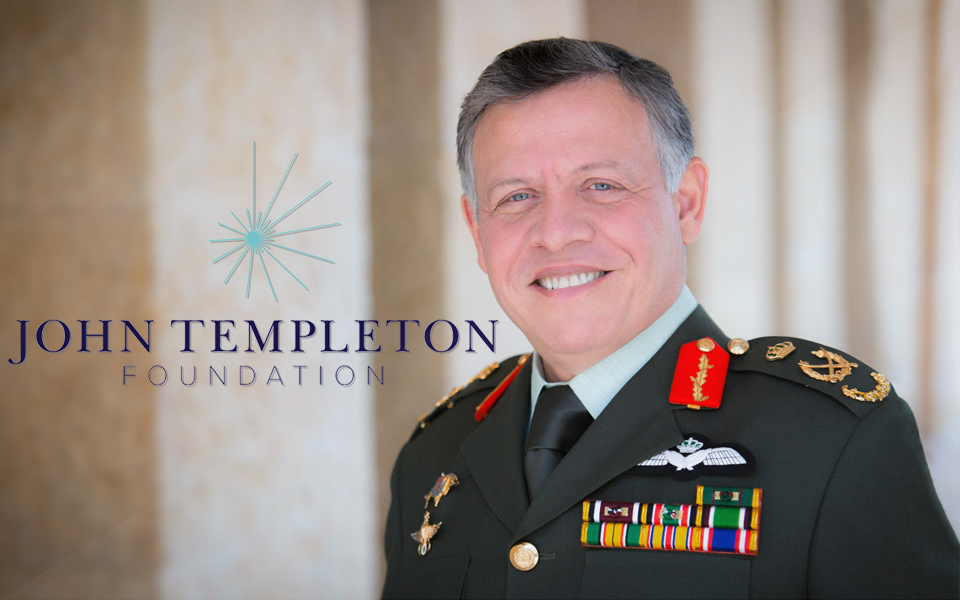Roger Tagholm
King Abdullah II of Jordan has become only the second Muslim to receive the prestigious Templeton Prize which honours “a living person who has made an exceptional contribution to affirming life’s spiritual dimension, whether through insight, discovery, or practical works”.
In awarding the prize, worth £1.1m ($1.6m), the Templeton Foundation said King Abdullah had “done more to seek religious harmony within Islam and between Islam and other religions than any other living political leader”.
The Prize, which rarely receives the attention of the Nobel Prize, was established in 1972 by the late Sir John Templeton, the US founder of one of the world’s largest and most successful international investment funds – the Templeton Growth Fund. Templeton combined financial acumen with a deep interest and respect for religion and the spiritual side of life. The inaugural prize was awarded to Mother Teresa in 1973 and other recipients have included the Dalai Lama (2012), the writer Alexander Solzhenitsyn (1983) and Inamullah Kahn (1988), founder and former secretary general of the Modern World Muslim Congress in Karachi, Pakistan.
The Prize aims, in Templeton’s words, to identify “entrepreneurs of the spirit” – outstanding individuals who have devoted their talents to expanding our vision of human purpose and ultimate reality. The Templeton Foundation, which is based in Philadelphia and includes the publisher the Templeton Press, says the Prize “celebrates no particular faith tradition or notion of God, but rather the quest for progress in humanity’s efforts to comprehend the many and diverse manifestations of the Divine”.
King Abdullah is the author of Our Last Best Chance: The Pursuit of Peace in a Time of Peril (Viking), published in 2011. In 2006 he supported and funded an initiative called A Common Word Between Us and You, which worked to unite Islamic and Christian leaders around the shared commandments in both faiths: to love God and to love your neighbour. In 2010, he proposed World Interfaith Harmony Week, which is observed annually by the United Nations during the first week in February.
The Templeton Foundation said that through these “ground-breaking initiatives and many others, King Abdullah II has led a reclamation of Islam’s moderate theological narrative from the distortions of radicalism”.
King Abdullah will be formally awarded the prize in Washington DC on 13 November.







